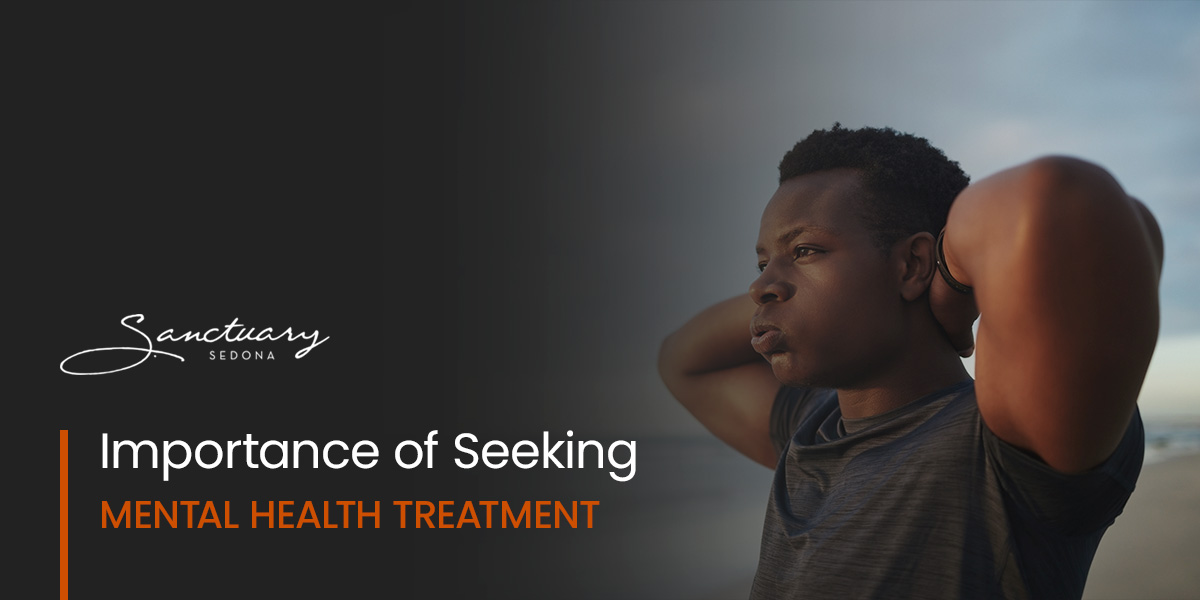Mental health disorders in the United States are becoming more common, and around 50% of people will be diagnosed with at least one mental health condition in their lifetime. Mental illness affects everyone, regardless of socioeconomic group and ethnicity.
Mental illness can significantly impact a person’s well-being, affecting their ability to perform everyday activities or live their lives. Mental health conditions can worsen without treatment. It’s beneficial to seek professional help for mental illnesses to improve your quality of life and find ways to cope or recover from your condition.
The Stigma Behind Mental Health Treatment
There has been a significant stigma surrounding mental health conditions. Some falsely believe mental health conditions aren’t real or as serious as physical illnesses. Others are worried about judgment from their family or peers if they talk about their mental health struggles. Regardless of people’s misconceptions about mental health, it can prevent them from seeking treatment that can improve their quality of life. People who struggle with their mental health without help are more likely to seek out harmful coping mechanisms, including addiction.
The good news is that mental health stigma is decreasing with time. As more people speak out about their mental health and educate others, others become aware of the importance of seeking treatment. However, there is still some reluctance when seeking treatment since many people worry about the remaining stigma and don’t always want to open up to a therapist or professional about their struggles. But seeking treatment can teach you ways to cope with uncomfortable feelings or symptoms.
Benefits of Seeking Help
Many people suffer unnecessarily from mental health conditions. While many conditions can’t be cured, people can learn how to cope with their symptoms to improve their lives greatly. Seeking treatment has many benefits for the millions of Americans who struggle with their mental health, such as contributing to a healthier society. Some of the notable benefits of seeking help for mental health include:
- Access to support: Seeking help means you don’t have to be alone while you learn how to cope with your mental health. Seeking professional help gives you access to a supportive community that understands your struggles.
- Improved relationships: Seeking mental health treatment allows you to build healthier relationships by utilizing clear communication, which can help you reconnect with your loved ones.
- Reduced risk for other medical issues: Untreated mental disorders can result in poor sleep, digestive problems, obesity and other concerns that are symptoms or results of inadequate coping mechanisms. Seeking professional treatment helps reduce the risk of these symptoms or conditions worsening.
- Development of coping strategies: A mental health professional can help equip you with coping mechanisms to help you navigate your symptoms or challenging situations.
- Improved work performance: Struggling with untreated mental health concerns can impact your work performance. Seeking help can improve your work performance and help you feel more motivated to complete work tasks.
- Improved quality of life: Professional help can improve your quality of life by helping you learn how to cope with your symptoms and improve your personal relationships.
Signs You Should Seek Help
It can be challenging to determine if you need to seek professional help, especially when everyone’s mental health journey is different. Below are some signs that you should seek professional help for your mental health:
- You’re finding it difficult to concentrate on various tasks, especially at work or school.
- Your family and friends have expressed concern about your well-being.
- You’ve started experiencing trouble sleeping, including insomnia or sleeping too much.
- You’ve lost interest in activities that once excited you or brought you joy.
- You feel alone or uncomfortable around your peers, even when surrounded by friends and family.
- You keep getting sick due to stress or emotional distress.
- You’ve started misusing substances to try to cope with your symptoms.
- You’ve gone through a traumatic event, such as a divorce, job loss or death.
While these signs can help you determine you need help, you may not experience any of them and still feel unwell. If you don’t feel well, you should still seek professional help to improve your well-being.
Common Therapies Used in Mental Health Treatment Centers
Evidence-based and holistic therapies are commonly used to address mental health conditions. These therapies can improve a person’s quality of life and help them learn the root cause of their condition.
Psychotherapy is commonly used to treat conditions such as depression and anxiety. Psychotherapy involves working with a therapist with specific methods, like cognitive behavioral therapy (CBT), interpersonal therapy and dialectical behavioral therapy (DBT). Psychotherapy can help with the following:
- Identifying adverse thought patterns that contribute to worsening mental health, helping to replace them with positive thought patterns
- Learning how to adjust to your personal challenges
- Developing healthy coping mechanisms
- Setting goals for positive change
- Learning how to manage stressful situations
- Having a supportive place to talk about your feelings and what’s happening in your life
Holistic therapies can also help with your mental health. Holistic therapy aims to treat the body, mind and soul together for the best chance at healing. These therapies can be effective for depression and anxiety treatment and more complicated mental health disorders. Some examples of holistic therapy include meditation training, movement therapy, expressive art therapy and nutritional counseling. Some of the ways that holistic therapy helps treat mental health include:
- Natural supplements, brain-calming activities and an anti-inflammatory diet to help heal the brain
- Energy medicine to address energetic causes of mental health, releasing negative thoughts and feelings from your energetic field
- Therapeutic creativity, rituals and ceremonies to help heal the soul and reconnect you to your passion in life
- Bodywork to identify the origin of physical ailments and connect with the body on an emotional level
Seeking mental health rehab is a brave first step to improving your overall well-being. You should never feel ashamed for struggling with mental health and needing professional help. Professional treatment can help improve your quality of life, giving you the skills and support you need to manage and recover from your conditions.
Prioritize Your Mental Health Today
If you need professional treatment for your mental health, The Sanctuary at Sedona can help. We’re an inpatient mental health facility in Arizona that specializes in mental health and addiction treatment. We utilize holistic and evidence-based therapies to help you experience whole-body healing, giving you the skills and tools to cope with your symptoms and condition. We can help you recover from your mental health conditions or co-occurring conditions you may be struggling with due to your mental health, such as addiction.
We’ve utilized our holistic therapies to help clients overcome their hardships and improve their quality of life. Contact us today to learn more about our mental health center and treatment programs or to request a call.

He is the Founder, Administrator, Counselor at the Sanctuary at Sedona.
He has a BA in Political Science and is currently Senior teaching staff at Four Winds Society, an international school of energy medicine. His credentials also include being an Ordained Minister; a Certified Shamanic Breathwork® Facilitator; a Founding Member Society for Shamanic Practitioners; a Member of Association for Comprehensive Energy Psychology; a Member of the National Institute for Holistic Addiction Studies. [email protected]



